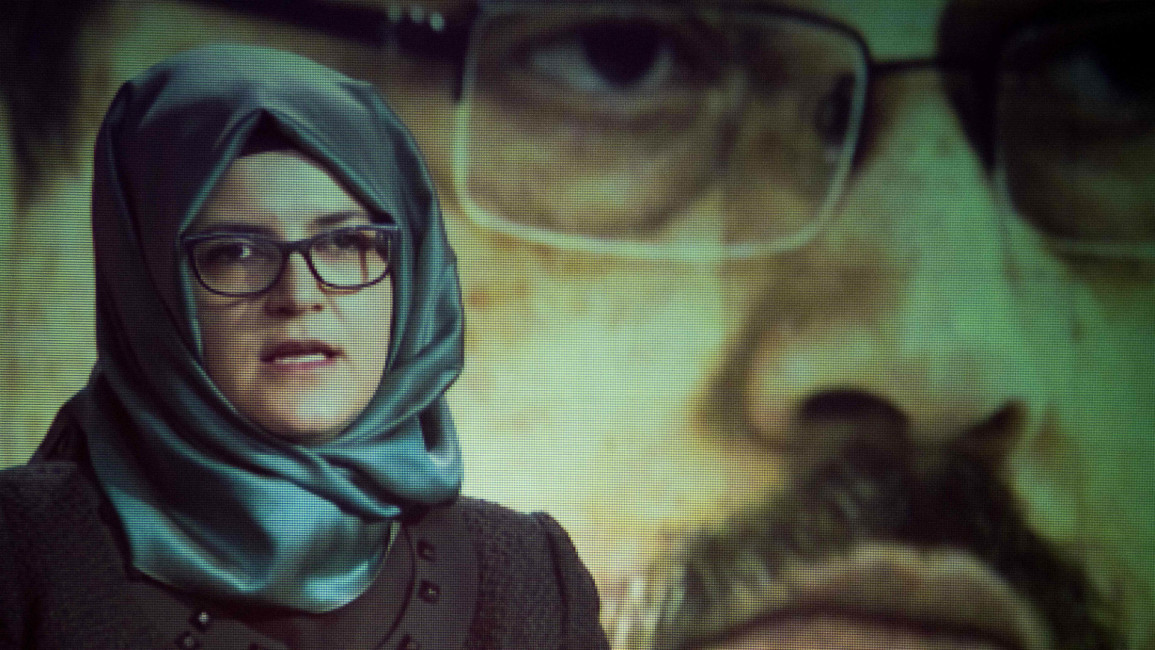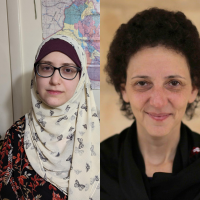
An appeal to G20, by Jamal Khashoggi’s fiancée and RSF's secretary-general
Considerable mobilisation is needed at the international level, because more than 90 percent of these crimes go unpunished, in both countries at war and at peace. The overriding need for this fight is demonstrated by the fact that some murders - because of their circumstances, protagonists or victims - have a special impact.
Jamal Khashoggi's murder inside Saudi Arabia's consulate in Istanbul belongs to a category one might have thought long forgotten - that of of "state crime".
Perpetrated by Saudi government thugs and planned at a political level that the trial in Riyadh is taking care not to reveal, it will leave an indelible stain on the regime unless all the consequences can be demonstrably been accepted and acted upon. It is not enough for Crown Prince Mohammed bin Salman to belatedly acknowledge "responsibility", because it happened "under my watch".
A state crime requires a full public apology, says Agnès Callamard, the UN special rapporteur on extrajudicial executions. We are waiting for this apology. Just as Khashoggi's loved ones are waiting for his remains, and for justice to be done.
The trial taking place behind closed doors does not respect international standards on justice. Rather than regarding a possible death sentence for five of the alleged perpetrators as a harsh punishment, we regret that Saudi justice has thereby silenced forever men who know some of this affair's secrets.
Since this tragedy, Saudi Arabia has continued to persecute its journalists with exceptional violence.
- Read more: Khashoggi's fiancee Hatice Cengiz: Jamal's murder changed everything. MbS must be punished
- Read more: Don't let Saudi Arabia's crown prince off the hook on Khashoggi
At least 32 professional and non-professional journalists are arbitrarily detained in Saudi prisons. This is twice as many as before MBS took over. Rarely has fear been so palpable, not just in the Arabian Peninsula but everywhere Saudis are to be found in the world.
It's against this backdrop that Riyadh is getting ready to hold a conference on the media in early December. Foreign journalists and media experts have been invited to a "Saudi Media Forum" to discuss media freedom and independence. We fear such a thing will be pure fiction, even if we'd like to believe otherwise.
Aside from the expressions of international outrage last October, the sanctions adopted by Washington, Ottawa, Paris and Berlin against a handful of individuals suspected of involvement in Jamal Khashoggi's murder have not sufficed to persuade the regime to moderate its repressive policies. Germany was alone in suspending arms sales to Saudi Arabia.
US vice president Mike Pence suggested that the release of Raif Badawi, a blogger sentenced to 10 years in prison and 1,000 lashes, would help to restore Saudi Arabia's international reputation. But just a month before that, US President Donald Trump insisted that Mohammed bin Salman stand beside him in the front row for the group photo of the G20's leaders during their meeting in Osaka, Japan.
- Read more: Pegasus: The Israeli spyware that helped Saudi Arabia spy on Khashoggi
- Read more: Don't let Saudi Arabia's crown prince off the hook on Khashoggi
The sons of Malta's Daphne Caruana Galizia, Gauri Lankesh's sister in India, and the families of Javier Valdez and Miroslava Breach in Mexico have already been fighting for two years to learn the truth about their deaths.
Three years ago, the colleagues of Jean Bigirimana in Burundi and Pavel Sheremet in Ukraine tried to make up for the failings of the police by carrying out their own investigations in an attempt to identify those responsible for Bigirimana's disappearance and the car bomb that killed Sheremet.
The list of victims gets longer by the day. In Mexico, at least 150 journalists have fallen victim to the drug cartels and the vicious cycle of violence and impunity since 2000.
The G20's leaders have a duty to act if they want to comply with the principle of responsibility. Without free, independent, trustworthy and diverse journalism, humankind will not be able to properly address any of the great challenges it is facing.
Heads of state and government cannot content themselves with being the passive spectators of the murders of journalists. And yet, Saudi Arabia is poised to take over the G20's presidency for a year.
Treating Saudi Arabia's G20 presidency as a presidency like any other would be to give the Saudis a "licence to kill," give them permission to suppress the truth and extinguish media pluralism.
We call on the G20 not to trample on Jamal Khashoggi's memory.
We ask its leaders to obtain clear undertakings from Saudi Arabia to respect press freedom and, as a first step, to release the 32 imprisoned journalists because, as Khashoggi said in his last column, "What the Arab world needs most is freedom of expression." This is also true for the rest of the world.
Hatice Cengiz was Jamal Khashoggi's fiancee.
Christophe Deloire is secretary-general of Reporters Without Borders (RSF).
Opinions expressed in this article remain those of the author and do not necessarily represent those of The New Arab.



